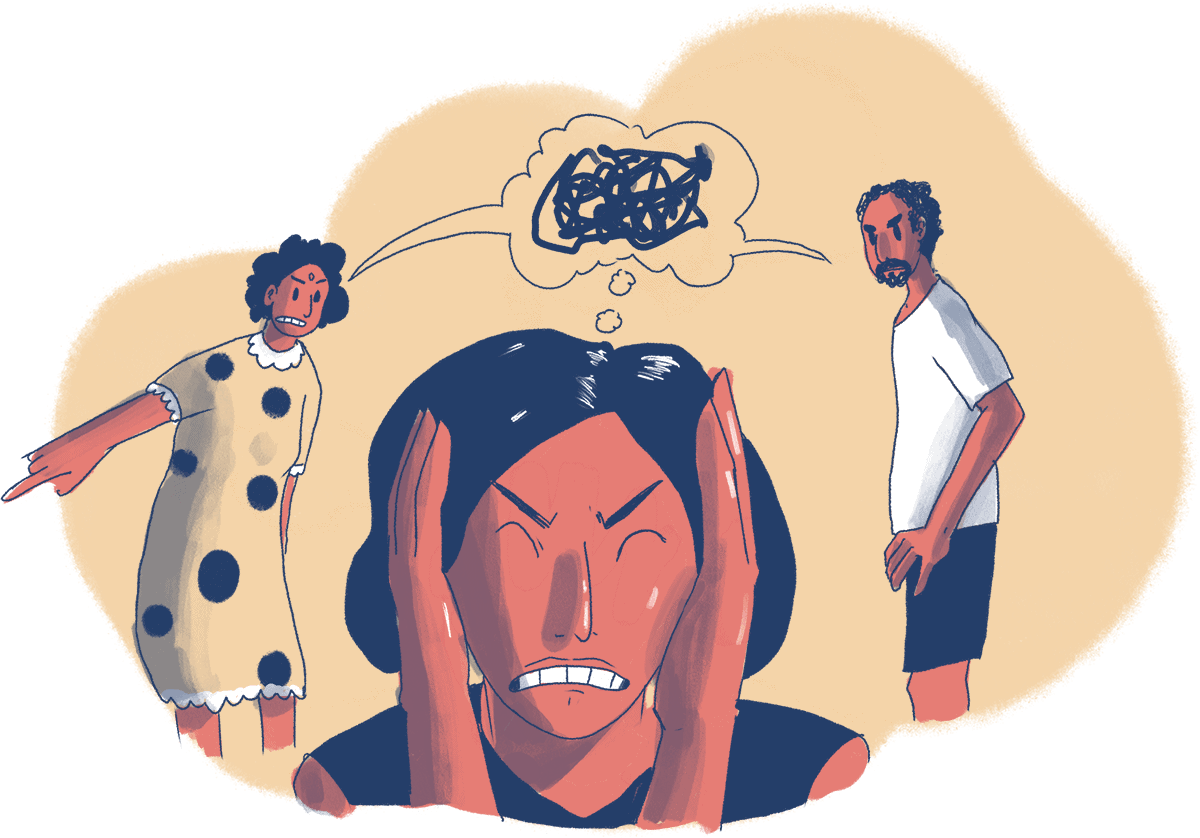
Not Your Average Teenage Angst
Vanshika Trivedi, 18 | ![]() Uttar Pradesh, India
Uttar Pradesh, India
I have always been an extremely academically productive student. My productiveness has its foundation in an anxiety of, ‘what if I fail?’. So, I was living my anxiety-stricken life when COVID-19 hit the globe. My life didn’t really alter too much. I was wholeheartedly (anxiously) preparing for my class 12th board examinations to pass them with flying colors. In brief, indifference was my reaction. However, things soon started to hamper my life. I had my third Board exam due in two days when the news on my phone popped up — “CBSE has postponed the board exams due to rapid spread of virus.” I cannot exactly recall whether or not I felt positive about it. I personally didn’t feel that exams being postponed would be beneficial. Plus, we were in a lockdown, and I wasn’t sure where this would end up.
*FAST FORWARD*
Exams got cancelled. Entrances of colleges postponed. Spending 24 hours a day with my parents and siblings in a compact three-room apartment was not enjoyable. My privacy, while talking to my friends, hid itself behind a rock. An ‘outspoken’ journalist’s screams “mujhe drugs do” (give me drugs) echoed in my entire house. I was waking up to videos on the internet that were extremely triggering. While I sat in my room wondering, “does my existence matter?” Being an extrovert, the lack of communication and interactions with people, and participating in discussions affected my mental health. Managing a routine, which previously I was extremely obsessed with, became hard as things were haphazard.
It was not an easy time to survive, especially when you are a feminist and you have a lot to say. I found my father’s often patriarchal remarks extremely problematic, and my mother sometimes tried to justify patriarchal norms. All this would flame the liberal and the feminist fires in me. In the beginning, these situations ended in quarrels with them. We had discussions on religion, patriarchy, homosexuality, rising atrocities, people not realizing their privileges etc. All this led me to the conclusion that even though my parents are an inseparable part of me, I don’t relate to them anymore. Even though I love them, I can still hold them accountable for the offensive and unhealthy remarks they make. The South-Asian belief that one has to comply with their parents’ values and ethics seemed blurry to me now. It occurred to me that my parents grew up in a different time where they were expected to conform to what their parents thought. And they now expect me to do the same. They don’t think their views are worth re-evaluating.I am generalizing, exceptions exist undoubtedly.
While I was figuring this out, my family began to make comments like, “Why are you so self-absorbed?”, “Why don’t you want to take part in family games?”, “Do you have no time for your family?”. I blamed myself for not being generous enough with my time. I soon realized that they wanted me to utilize this time to strengthen our family bonds but my mental health stood in the way. I tried not to argue with them about spending time together. But the pressure made me feel more detached from them.
Coming back to my exams, results and college… My college admission depended on my board results, and this ultimately determined my career prospects. CBSE’s solution to cancelling all exams was to grant marks on the basis of averages. This was a disadvantage for students like me who had only given two exams before the lockdown. The policy said that the two subjects in which the student scored highest would be taken into account to grant marks for the remaining subjects. It also said that students who had given just two exams will have their pre-board’ marks taken into account. But this did not happen. Later, CBSE did propose a solution of appearing for exams, but my parents didn’t let me go for these because of the terror of the virus. So, I had to make peace with whatever marks I got.
I had a hard time but now I know not everything can be planned. We have been told since childhood that “charity begins at home”. I am proud of myself that I was able to recognize the orthodox values that my family holds sometimes, and that I tried to start a conversation to change this. I am grateful that my parents aren’t too difficult to argue with. I am confident we will grow to be a more inclusive and educated family together. I also feel that I want to work with them to start conversations about mental health, and about setting boundaries for emotional
availability.
All this may sound like just another haphazard, clichéd teenager’s story but these small endeavors and struggles make us stronger and resolute. I think my generation will be known for unlearning past patterns and creating new ones.